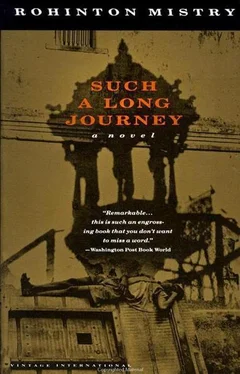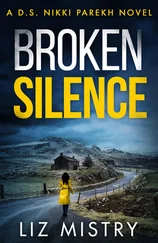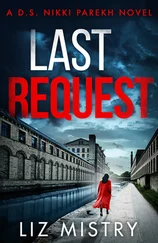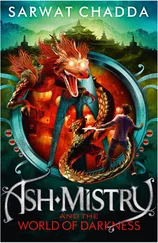‘Forgive me for disturbing you,’ said Dinshawji, very soft. As soft, she thought, as the muted midnight clucking of the chicken Gustad had brought home. ‘Could I speak to Gustad please? It’s very important.’ His voice shook, and his rheumy eyes wandered nervously as he fidgeted, moving the newspaper from one armpit to the other.
‘He went out just two minutes ago.’ Her resolve to chasten him with a cold shoulder and sharp tongue weakened somewhat.
‘Out?’ He looked as if he would burst into tears. ‘Ohhhh. Now what will I do?’ He began to twist and tug at one of his shirt buttons. ‘It’s very, very important.’
That melted Dilnavaz’s remaining resistance. ‘Come in,’ she said, ‘if he is still at the bus stop I’ll call him back.’
‘No, no, no. How can I give so much trouble?’
‘It’s OK, bus stop is just outside the compound. Just come in and sit, baba.’
As if threatened by her note of impatience, he immediately made his way to the sofa. ‘Thank you, thank you. Sorry for the trouble, please forgive.’ The teapoy caught him on the knee as he stumbled past, making him wince. He lifted his trouser leg to examine the spot while Dilnavaz called Tehmul.
‘HowareyouIamfinehowareyouthankyoupleaseveryverytastyjuice.’
‘Quick, go to the bus stop. If Gustad is there ask him to come back. Tell him very important. Quickly.’ Leaving the door open, she went inside to sit with Dinshawji.
But Dinshawji was no longer alone. His timid whispers had reached into the back room and awakened Roshan to the visitor’s presence, the visitor who had once made her laugh, made her birthday glow with merriment for a while, before everything became noise and quarrel and unhappiness. Now, with her doll, she waited on the sofa beside Dinshawji and hoped he would soon start being funny again.
‘Will you drink something?’ Dilnavaz asked him.
‘No, no. Enough trouble I have given you.’ She brought the glass of water that Gustad had refused a few minutes ago.
Tehmul appeared in the doorway. ‘GonegoneGustadgone. BusgoneGustadgone.’
‘Gone?’ Dinshawji repeated helplessly.
‘Gonegonegonegone.’
‘It is very, very important to talk to him,’ he said, rolling the newspaper desperately, tighter and tighter. His distress was acute; Dilnavaz could not let him leave.
‘He went to the doctor for Roshan. It won’t take long.’
‘So much trouble I am giving,’ he said timorously, but was relieved at being allowed to stay.
Tehmul dragged his bad leg slowly into the room. His shining eyes were fixed on the doll. ‘Pleasepleaseplease. Letmetouchplease. Pleaseonceonlypleasepleaseplease.’
‘No!’ Roshan clutched the doll about the waist.
Dinshawji smiled. ‘Such a small girl and such a big voice.’
‘Tehmul,’ said Dilnavaz sternly. ‘Go play in the compound.’
He stopped his forward movement, his lower jaw working as though in search of words to protest. But there were no words, and no one to complain to. He left. A leaf fell from the neem tree, gracefully sailing earthwards on the breeze. He followed the leaf. It floated to the left, turned to the right, then spun with the current. He stumbled, tripped, and fell. Dilnavaz sighed and shut the door.
‘Your voice is not sick,’ said Dinshawji to Roshan. ‘Nice and strong it came out just now, didn’t it?’
‘Touch wood,’ said Dilnavaz, reaching for the teapoy with one hand and guiding Roshan’s with the other. Dinshawji obligingly followed their example.
‘Come on, Roshan,’ he said. ‘Let’s hear your voice again.’ She smiled, embarrassed, and fussed with the doll’s veil. ‘How about a little song? They must be teaching you songs in school. Come on, no, please,’ he cajoled.
She hesitated, then said, to Dilnavaz’s surprise, ‘We sing “Two Little Eyes” for assembly every morning.’
‘Perfect,’ he said. ‘I would love to hear that. Do it just like in school.’
‘OK.’ She sang softly:
Two little eyes to look unto God,
Two little ears to hear His words,
Two little hands to work every day,
Two little feet to walk in His way,
performing each line with all the actions taught by her teacher — pointing to eyes and ears, holding out her hands, indicating the feet.
Dinshawji clapped. ‘Very good, very good. What else does the assembly sing?’
She stood and clasped her hands, bowing in each direction as she sang:
Good morning to you! Good morning to you!
Whatever the weather, we’ll make it together!
In work and in play, a beautiful day!
‘Bravo, bravo,’ said Dinshawji, holding the doll’s hands and bringing them together in a clapping motion.
‘Enough singing,’ said Dilnavaz, ‘or you will get tired.’ She went to the kitchen to check if the potatoes were done. When she returned, they were playing games with their hands spread flat on the teapoy. Dinshawji was counting out the fingers for Arrung-Darrung. As he reached the end, Roshan joined in with ‘ Bhum dai nay bhooski !’ That was the cue to raise their hands and slam them down, pretending to collapse where they sat.
‘You are too old for that game now, Roshan,’ said Dilnavaz. ‘We used to play it when you were four or five.’ She detected some slight envy in herself.
‘She played it for my sake,’ said Dinshawji. ‘I am still young enough for it. Now we will play Kaakerya Kumar. ’ They stacked their fists upon the teapoy, Dinshawji’s at the bottom, then Roshan’s then his again, with Roshan at the top. They went through the questions and answers: ‘ Kaakerya Kumar, ketlo bhaar?’ ‘Munno bhaar.’ ‘Ek utari nay bagalma maar, ’ taking turns and coercing each other with dire threats to retract the fist and stick it in an armpit. Imaginary chairs, cupboards, beds, cars, lorries were hurled at each other, till the imaginary pain was so much that someone capitulated. The denouement came when Dinshawji’s final fist resisted all threats, including the wrathful flames of Small God, until Roshan hurled the all-consuming fire of Big God. Dinshawji removed his fist amidst howls of pain: ‘O, I’m burning! I’m burning! Burning in the fire of Motta Dadaji!’
Even Dilnavaz laughed at his antics. Then she insisted that Roshan really must lie down again. ‘One more game, please Mummy, before I go.’ She got her pack of cards and played Ekka-Per-Chaar, in which she was trouncing Dinshawji, till she got sleepy and abandoned the game. She went to bed smiling, leaving the doll on the sofa.
Dinshawji’s anxiety and nervousness returned once she left. He began toying with his newspaper again, rolling and unrolling it. Its edges were in tatters, his clammy hands covered in black smudges.
Gustad insisted that the compounder deliver his message immediately to Dr. Paymaster: it was an emergency. He waited by the tiny cubicle in the little storage space, amid medicine bottles of green glass, foul-smelling powders, and boxes containing pharmacological paraphernalia. Everything covered with dust. Unused for God knows how long. Why does he bother to store all this? Always prescribing his same standard four-five remedies. And calls himself a doctor. God knows why we keep coming to him.
The patient inside emerged, and through the ground glass the doctor’s figure could be seen walking towards the cubicle. An ill humour had settled upon Dr. Paymaster after a day of dealing with fools and misguided militants. All morning, he had spent his energies convincing his neighbours that the way to make the municipality repair and improve things was through the democratic process, through petitions, through the ballot box, or the judiciary. Just because the gutters stank was no reason for them to sink to the gutter-level rowdyism of the ruling party, or take out a big morcha to threaten the municipality. Finally, they agreed to try his way. But after they left, he had to argue for an hour with the gas company, to get a replacement cylinder — explaining to the idiots that if he could not light his burner and sterilize his equipment, the clinic would shut down. But the idiots would not understand. How was the country going to fight a war at this rate, he wondered.
Читать дальше












